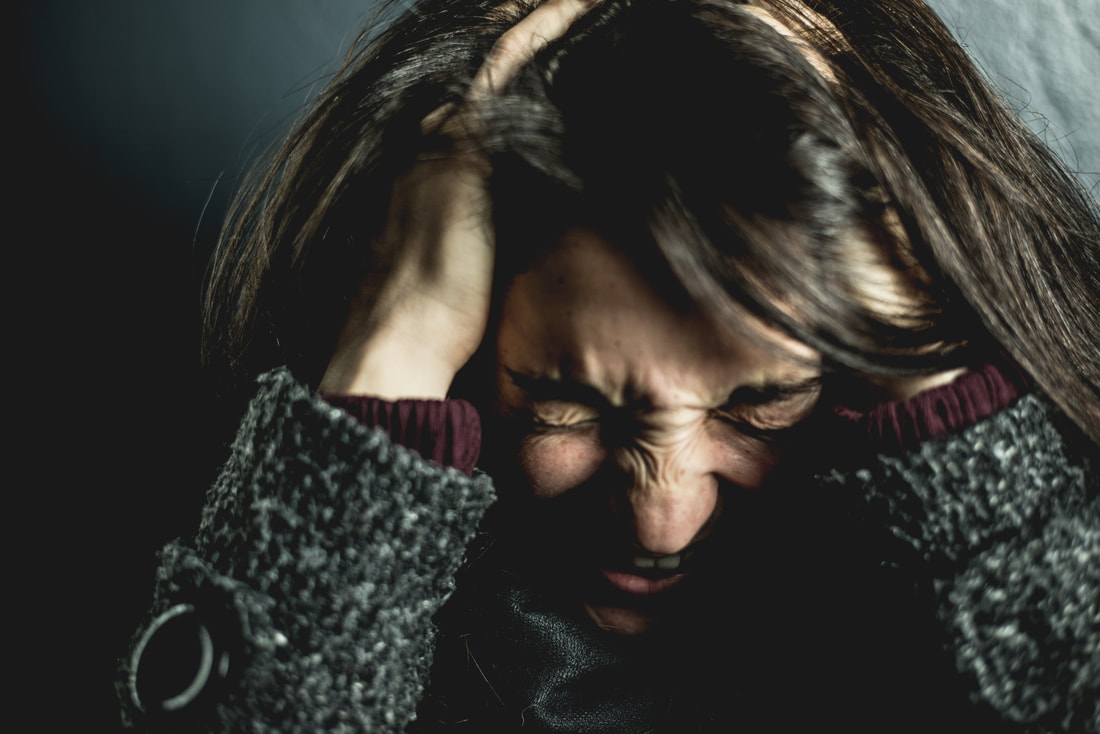|
Parents across the country have seen their teen's lives impacted and you see this in your home. Your teen was incredibly excited about their prom, graduation, sports season, or even just hanging out with friends. The pandemic came and disrupted everything, your teen is acting differently than before and you are concerned. In this article we will explore how to check-in with your teen during this time and when to know that it is time for help. How to talk with your teen about how they are feeling Many teens can often be resistant about talking about how they are feeling. Here are some tips when engaging with them.
When should you get help for your teen? First and foremost, any discussion of suicide should be taken seriously. When this happens, you can visit your local ER to get your teen the help that they need. Here are some symptoms that can warrant a visit to your doctor or a therapist. It is important to note that every adolescent can exhibit some of these symptoms from time to time. However, noticing a marked increase in these behaviors in a short period of time could be a signal for additional help.
If you need additional help for your teen and live in the State of Texas, we currently offer video counseling during the coronavirus. Please call us at 512-676-5813 for a free phone consultation to see how we can best support you.
0 Comments
No two people look at the world the same way, even when they have the same experience. Informing our responses are typically core beliefs that are deeply held that color the way that people process different experiences. These core beliefs are like glasses, how you interpret what is happening around can vary depending on the type of lens that you are using. In this article, we will discuss core beliefs and how they can impact your sense of self. What are core beliefs anyway?
Core beliefs are defined as a person's deepest opinions about themselves, others, and the world around them. These beliefs become the lenses by which a person views every interaction and experience in their lives. Core beliefs can be inaccurate or balanced, but they both affect how a person sees the world. Harmful or inaccurate core beliefs can lead to negative thoughts, feelings, and actions. More balanced beliefs tend to lead to rational thoughts, feelings, and actions. Unchecked negative core beliefs can lead to anxiety, depression, low self-esteem, and difficulty navigating stress. A tale of two different people with differing core beliefs Let's say that Susan and Debbie just got new jobs. They work at the same place and started at the exact same time. Each of them just finished their first manager meeting and received critical feedback about mistakes that they performed on the job. Susan:
Debbie:
Both Susan and Debbie had the exact same experiences, but Debbie was able to cope with the negative feedback she received because of her core belief which drove different actions than Susan's. What are some common core beliefs Almost everyone struggles with negative core beliefs. Some examples of common core beliefs are below.
How to challenge negative core beliefs When you notice negative core beliefs about yourself, do not let those go unchecked! Here are things you can do to help challenge a core belief.
If your negative core beliefs begin bleeding over into feelings of extreme depression, anxiety, or sadness it might be time for help. If you live in the State of Texas, Seeds of Change Counseling is currently offering video counseling sessions. Call us know at 512-676-5813 for a free therapy consultation to see if we are a fit for your needs. We have all heard how important exercise is for our physical health. In fact, the Department of Health and Human Services recommends getting at least 150 minutes of moderate aerobic activity or 75 minutes of vigorous aerobic activity per week. Besides benefiting our physical health, exercise is also extremely beneficial to our mental health. In this article, we will explore the mental health benefits to exercise. Anxiety disorders are common in the United States, the Anxiety and Depression Association of America (ADAA) indicates that 40 million adults age 18 and older (18.1% of the US population) are affected by anxiety disorders annually (https://adaa.org/about-adaa/press-room/facts-statistics). The ADAA reports that 16.1 million adults over the age of 18 (6.7% of the US population) suffer Major Depressive Disorder in a given year.
Most of us have noticed that a brisk walk outside or a jog around the block can lift our mood, but what does the science say about exercise and mental health? Exercise's effect on the brain Exercise can enlarge certain areas of the brain by improving blood supply that increases neuron health through improved delivery of oxygen and nutrients. One of the areas that enjoys this effect is the hippocampus. This area of the brain is responsible for memory, emotional regulation, and learning. Studies completed in other animals show that exercise leads to the creation of new neurons. Research also shows that several mental health conditions, especially depression, are associated with lower amounts of growth and development of nervous tissue in the hippocampus. Where to turn when you need additional help? If you struggle with a major depressive or anxiety disorder, exercise along may not be enough. You will likely need help from mental health professionals such as a psychiatrist and therapist. If you live in the State of Texas, Seeds of Change Counseling Center is offering video counseling during this time of pandemic. Call us at 512-676-5813 for a free counseling consultation to see if we would be a good fit! You are getting that feeling again - impending doom, you are scared of losing control or even death, your heart is racing, and you are shaking. It has happened again, another panic attack. Panic attacks strike when we want them to least, and often times we feel powerless against them. In this article, we will review five ways that you can cope with your panic attack.
There are many unknowns in the world right now, and you are starting to feel their impact. Everything feels never ending and you have been feeling down lately. The only thing is that you do not know if you are sad or depressed. In this article we will take a look at the difference between sadness and depression and when it is time for professional help. What is sadness?
Sadness is a common and normal human emotion. Sadness is triggered by an event or experience that is challenging, hurtful, or discouraging. The characteristic to know about sadness is that it can be thought of as a response to such an event or experience. This also means that our sadness to a particular event or experience will subside once we have adjusted or come to terms with that change. What is depression? On the other hand, depression is not just an emotion. Depression is an abnormal emotional state, a mental illness that affects every part of our lives - our thinking, our feelings, and our insights. It is chronic in nature and when we are suffering from depression, we are sad about everything, not just a particular event or experience. Often times everything is going well, and you should not be feeling sad or down, but you still feel horrible and sad about everything. Depression becomes the lens by which you see your entire world. Everything becomes less enjoyable, less pleasurable, and less worthwhile. Depression can leave you feeling numb without the ability to experience joy, excitement, and connection with others. It can also leave you physically drained without energy to complete basic tasks such as hygiene or even eating. When is it time for help? If you are unsure whether what you are feeling is sadness or depression, it is affecting your day to day, and you think you might be depressed, it is important to seek the help of a professional. Depression is common and there are many treatment methods that may benefit you. If you live in Austin, Seeds of Change Counseling would be honored to help. We offer a free phone consultation to see if our counselors would be a fit. Call us now at 512-676-5813. |
Archives
September 2020
Categories
All
|





